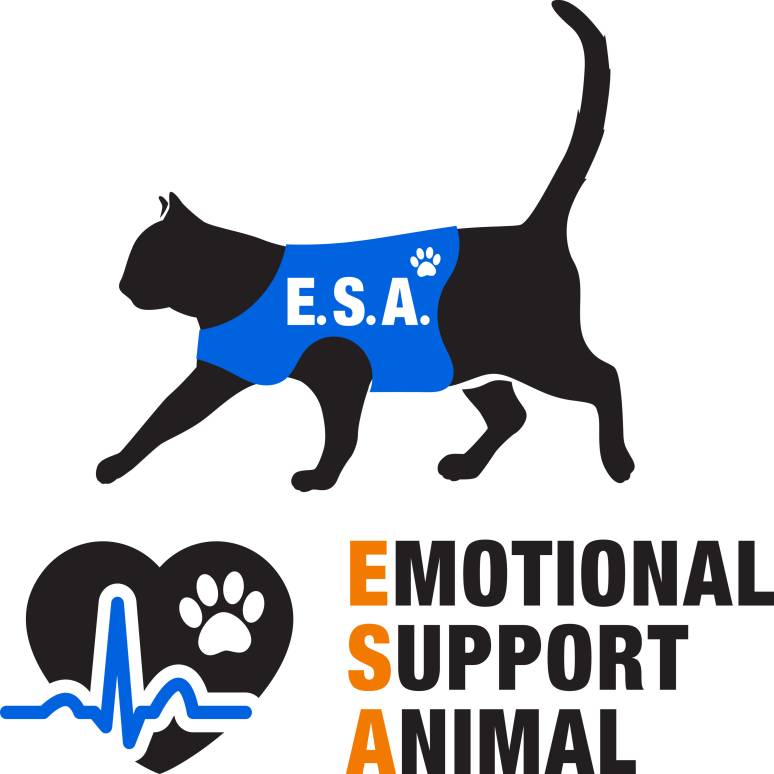Many people benefit from owning an emotional support animal (ESA) because they feel better when their dog or cat is around. An emotional support animal counts as a type of assistance animal, since they help with a person’s disability. However, many often mistake emotional support animals with service animals, another term commonly heard of. Contrary to popular belief, they are not the same. Both are considered different types of assistance animals, but they have their own definitions.
We help people get the proper documentation to make their pet an official Emotional Support Animal. Online approval in minutes - Housing & Travel letters.
What is an Emotional Support Animal?
An emotional support animal is a type of assistance animal that a person may own. They provide emotional support to their owners, such as by providing comfort. This means that the animal may be able to respond to a person’s emotions, or to calm them down when they are feeling down.
An emotional support animal does not necessarily have to be a dog or cat, though. It can also be an iguana, bird, fish, and many more. This is an extremely broad definition of an emotional support animal because there are so many different animals that can be considered one.
What is a Service Animal?
A service animal is a type of assistance animal that is trained to perform a specific task for the person that needs it. These animals are specifically trained to help with a person’s disability.
They can range from a seeing eye dog, to an animal that alerts its owner when someone is in the room, to an animal that can assist with toileting or other basic tasks. A service animal must be trained to perform a task or perform certain duties.

Review symptoms, medications & behavior to keep your pets healthy with a Vet Online in just minutes.
We help people get the proper documentation to make their pet an official Emotional Support Animal. Online approval in minutes - Housing & Travel letters.
The Difference in Skills and Responsibilities
An emotional support animal does not have to be trained to perform a task or perform certain duties. They can be any type of animal, such as a fish, bird, or iguana. This is different from a service animal, which must be trained to perform a task or perform certain duties. A service animal can also be called an emotional support animal if it provides emotional aid and comfort to their owner, on top of being trained to assist with a person’s disability.
A service animal can do many things, such as pushing their owner’s wheelchair and reminding them of their medication. Because of these complex skills, they usually require intense training. In comparison, an emotional support animal does not need training.
The Difference in Laws
Under the Americans with Disabilities Act (ADA), service animals are defined as animals that are individually trained to do work or perform tasks for people with disabilities. Service animals are also allowed in places that are normally off-limits to pets, such as restaurants and stores.
In contrast, emotional support animals can be any type of animal, and they are not required to perform a task or perform certain duties. Emotional support animals therefore do not have the same legal protections as service animals. They may not be denied access to public places, but there are certain exceptions.
One of the most notable exceptions is when it comes to boarding flights. A service animal is always allowed to board onto a flight with their owner. Meanwhile, an emotional support animal would need to provide ample documents to prove their ESA status, and they can also be denied access if the flight does not have enough space for the animal.

Tom
Tom has always loved to write since he was little - he wanted to be either a writer or a veterinary doctor, but he ended up being a professional writer while most of his works are based on animals. He was born in San Francisco but later moved to Texas to continue his job as a writer. He graduated from the University of San Francisco where he studied biotechnology. He is happily married and a soon to be father!
Review symptoms, medications & behavior to keep your pets healthy with a Vet Online in just minutes.
Ask a Vet Live Now




